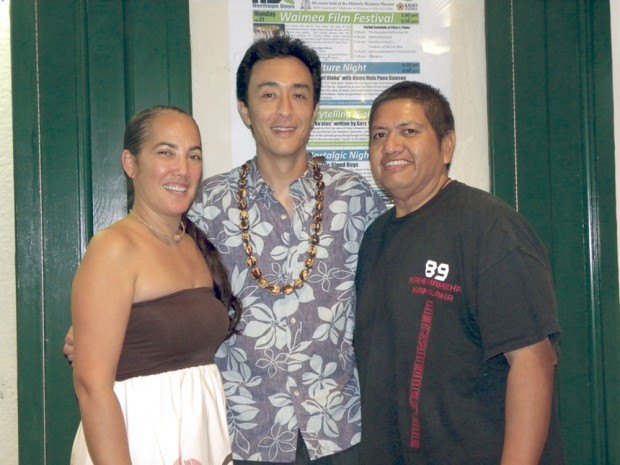As part of Waimea Heritage Days, co-created by Puni Patrick and Thomas Nizo, the Waimea Film Festival hosted a number of films from 1 to 7 p.m. on Feb. 21. Patrick and Nizo focused on featuring films with directors and
As part of Waimea Heritage Days, co-created by Puni Patrick and Thomas Nizo, the Waimea Film Festival hosted a number of films from 1 to 7 p.m. on Feb. 21. Patrick and Nizo focused on featuring films with directors and themes related to Hawai’i. Mahalo to Patrick and Nizo for bringing this event to Kaua‘i.
Many of the films were created and contributed by Kapa’a High School. “Intexticated” won first place during National Teen Driver Week campaign.
“Akamai Backyard,” another Kaua‘i film, is the true story of a group of Kaua‘i students who learned the wisdom of Hawaiians to grow an abundance of food on a small plot of land. To learn more go to www.akamaibackyard.com.
In addition, the Waimea Film Festival featured “Barbara Kawakami: A Textured Life,” directed by Akira Boch. Boch, who flew out from LA for the film festival, was available in the audience to answer questions related to the film. Truly, this was a special event.
A documentary, the film explored the journey of Barbara Kawakami, a woman raised in a Japanese sugarcane plantation camp in Waipahu. The film opened with beautiful historical footage of Japanese plantation workers provided by the Bishop Museum.
Anyone with an interest in history, textiles, sewing, or who has flirted with the idea of returning to higher education as an adult, must see this film.
Kawakami, a mother of three and successful dressmaker, left her dressmaking career to pursue higher education at the age of 53. Her insightful questions and passion for education gained notice from her professors, who encouraged Kawakami to create a picture bride slideshow and later her book, Japanese Immigrant Clothing in Hawaii, 1885-1941.
The film details Kawakami’s travels to Japan in order to interview people related to her passion for the clothing worn by plantation workers and the people who made the garments. It was fascinating to see that the garments from over 100 years ago were not faded, and were kept in beautiful condition with Indigo dyes used at the time.
Kawakami’s inspiring story allows viewers to question their commitment to their own passion while giving encouragement that it is never to late to start. It shows that humble beginnings and sheer determination can lead to a life fulfilled with meaning.
The feature film of the evening, “One Voice,” documented Kamehameha School’s Song Contest, an annual event at the Kapalama Campus, started in 1921 to celebrate the Hawaiian language while creating unity and pride in the Hawaiian culture.
Directed by Lisette Kaualena Flanary, the film received awards at the Hawai‘i International Film Festival and San Diego’s Asian American Film Festival in 2010. It is selected to compete at the San Francisco International Asian American Film Festival in 2011. Stay tuned.
It is hard to imagine a dry eye in the Waimea Theater at the end of this moving film. It followed the labor-intensive preparation, heartfelt passion, and remarkable dedication of student song directors who represented grades 9-12.
Each of the song directors were followed throughout the film and a glimpse into their family lives was revealed. Whether inspired to lead their class because of family tradition, a personal yearning or to take competition to a higher level, these young people will amaze you.
Graduates of Kamehameha School’s Kapalama Campus, such as Patrick and Nizo, and lovers of music and language alike, will draw from a well of personal experience to reflect upon after seeing this film.
Patrick and Nizo shared memories of each of their song contest experiences with me as if it were yesterday. The pride, love and nostalgia in their eyes and voices were touching.
This film is a must-see, especially for those of us living in Hawai’i. May the life of the Hawaiian language continue to flourish and live on into eternity.


